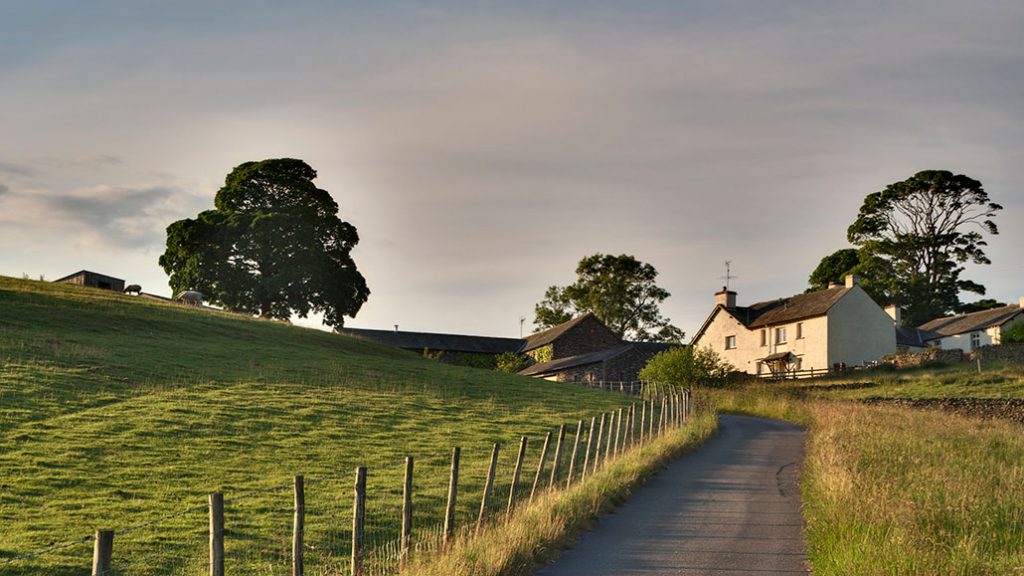Moving off the farm
FIVE THINGS FOR FARM FOUNDERS TO CONSIDER

A DISTRAUGHT MIDDLE-AGED farm woman asks for advice on buying her daughter a farmhouse just down the road. This is a loaded question. When farm founders are considering how long they want to stay on the main farmyard, there can be a lot of conflict and frustration. I suspect the mom’s plan was to have a “switch of homes” later on, but I am not sure everyone shared her enthusiasm. This is just one example of how moving off the farm can be a tough decision.
Every situation is unique, but in my decades-long career as a farm coach, these issues rise up as the top considerations and discussion points when a successor is considering moving off the farm (or is determined to stay put).
“DAD GREW UP IN THIS HOUSE. HE HAS LIVED HERE ALL HIS LIFE — IT IS ALL HE KNOWS!”
Yes, there is a deep emotional attachment to your family of origin. Women find this interesting to process as they were uprooted the day after their wedding (unless, of course, they are the successor). I am not downplaying this issue. I want you to consider the family circle’s needs. The spouse, who is tired of living on the main yard where the bulk of daily farm decisions are made, is likely ready for a quieter lifestyle. They also may want a smaller, easier, more up-to-date space to keep clean. According to the Globe and Mail, there are new businesses created to help aging couples get rid of their stuff, and clear away the mementos that their adult children forgot to move out of the family home. Being overwhelmed can be paralyzing, so this could be a useful service to some.
Moving off the farm requires some preparation to help the event to materialize. You might also want to hang farm pictures in the farm office, away from the family home. The artifacts with deep meaning can move to the new parental home, and others can have a place of honour at the main farm. I’ve seen families create a family room over the garage or as a separate building where many loved items are displayed for all the family to enjoy.
If Dad cherishes his relationship with Mom, he may also consider that it is now her turn to “get what she wants.” This is not popular with either spouse who doesn’t have the emotional capacity to consider what the other spouse needs from them to be happier.
“MOM IS WIDOWED, BUT SHE IS STAYING PUT TENDING TO HER PERENNIAL GARDEN AND RASPBERRIES!”
Gardening is a great activity for health and well-being. Where is it written that moving off the farm means you won’t still have access to the farm garden? Or maybe you’d have more fun now doing a community garden in your new condo in town.
In 2008, a group of us built a 19-suite, one-level apartment complex in our town. We thought folks would be grateful not to do yard work, but the amazing thing is the community garden tends to increase in size each year. The yearning to watch things grow and harvest the fruits of your labour doesn’t change when you leave the farmyard. If you are staying put on the farm to tend your flower beds, this likely will shift in the next decade. Are you willing to put a timeline on the date you will be moving to an off-farm location?
My garden is one-third the size it once was. Now I have a dream and goal to teach grandchildren the love of spinach and cherry tomatoes.
“YOU CAN TAKE THE FARMER OFF THE FARM, BUT YOU CANNOT TAKE THE FARM OUT OF THE FARMER.”
As farmers, it’s efficient to be close to the livestock that needs daily care and be able to close grain bins fast in poor weather, as well as monitor the fans. You need to ask the founders what a good day on the farm looks like to them. One farmer who now visits his former yard takes great delight in meeting his son for management meetings in the farm shop and checking the list on the whiteboard for jobs he’d like to tackle that day. Maybe dad is worried about moving off the farm because he will miss the shop too much.
Our condo complex has a workshop with tools to help encourage the fix-it people to have a place to create and be handy. Older farmers, who are now reinventing themselves as the hired help again, gain energy when they can trust that the work on the farm is getting done even when they are not close by to inspect work progress.
I have seen families add a granny suite to the home to accommodate parents living on the farm well into old age. In Ontario, this is a workable solution (or living on a nearby small farm), yet someone still has to do the yard work and plow out the driveway. Each family member has to collaborate their decision making and adapt to changing needs.
“MOM NEEDS TO HAVE HER OFFICE SPACE IN HER HOUSE TO DO THE FARM BOOKS.”
Newsflash: you can do farm books digitally from a distance. You can also start mentoring a new bookkeeper and plan for a farm office that is not connected to a personal dwelling. This increases the professionalism of the business system and creates a space that non-family employees can also access easily. It also leads to more financial transparency between the generations.
“HOW DOES IT FEEL TO BUILD A HOUSE ON LAND THAT YOU DO NOT OWN?”
The pride and security of personal homeownership is a key goal for the next generation. There needs to be a huge degree of trust and agreement when the parents allow a second dwelling on the same farmyard. I have a “half-mile rule,” where I suggest that the in-laws live at least a half-mile apart. We amended this for our son when his wife asked to live across the shelterbelt, and it works out well as we still have privacy, not to mention a great relationship.
I was okay about not leaving my home of 38 years, and don’t get house envy except when I watch too much HGTV. You don’t want volatile family dynamics with housing that is close by. There are also tax implications with assessments, so check out the financial ramifications with your accountant.
Inter-spousal agreements should also be considered. If the couple next door divorces, is the non-farm spouse forced to move? Yikes. Couples should understand the legal implications of a split when their home is built on land owned by a farm corporation. And there is also lots of discussion about who pays for renovations! The farm, or you personally? Ask. Don’t assume. Create solutions together. Abide in peace.
Moving off the farm is an important thing for founders to consider as the next generation takes over. Discussing it and setting expectations in advance is the best way to avoid conflict later on.
Elaine Froese is a Manitoba-based farm family coach who specializes in farm succession planning. This article was reprinted with permission from www.elainefroese.com. •











